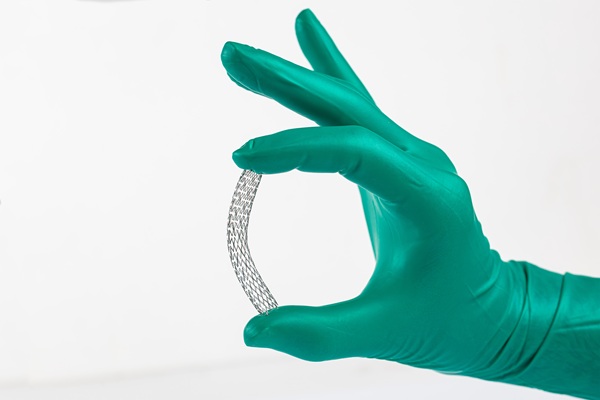Lifestyle Changes for Chest Pain Treatment

While chest pain may be uncomfortable, anxiety-inducing, and signal a more serious issue, a cardiologist can diagnose the source of the issue and provide treatment. This treatment plan will help patients manage this dull or sharp pain, often involving simple lifestyle changes that improve not only heart health but also one's overall sense of well-being.
Exercise, with a focus on cardio
Getting regular exercise can prevent a host of health problems. If chest pain is the issue, patients should place emphasis on cardio exercise to get their heart pumping, thereby improving heart health. The American Heart Association (AHA) recommends at least 150 minutes of moderate cardio a week or 75 minutes of vigorous cardio. Moderate exercise brings the heart rate up to between 50 and 70 percent of one’s maximum heart rate, while vigorous exercise reaches about 70 to 85 percent of that maximum.
Note that any exercise that increases heart rate can be considered cardio. Walking, hiking, dancing, swimming, roller skating, gardening, and even stretching are all cardio exercises. Patients who have trouble sticking to a routine are encouraged to try out a type of cardio that they find enjoyable.
Manage stress wherever possible
Stress negatively impacts heart health, as well as general health. A cardiologist may recommend various stress management techniques, such as journaling, meditation, or mindfulness. Even spending time with loved ones each week may reduce stress. Talk to a cardiologist for personalized tips on reducing stress in daily life.
Limit alcohol and avoid tobacco
Alcohol and tobacco are known to increase heart rate. Furthermore, the regular consumption of alcohol can weaken the heart muscle over time. The most effective way to reduce these risks is to stop using tobacco and limit alcohol. A cardiologist can provide tips for patients who want to quit either of these substances.
Eat a nutritious, heart-healthy diet
What you eat greatly impacts your heart health. Eating red and processed meats, high-fat dairy products, and high-sodium foods can lead to high blood cholesterol and pressure, making the heart work harder than it should. Instead, opt for a diet comprising fruits, vegetables, whole grains, lean meats, and seafood.
Reduce caffeine consumption
There is a lot of debate about whether coffee is good for the heart. The AHA recommends limiting caffeine intake to a moderate amount. For most adults, the Food and Drug Administration (FDA) defines “moderate” as about four to five cups of coffee daily. Some people find their limit is much less than four, however.
Know when to see a cardiologist
Lifestyle changes are crucial to improving heart health. That said, knowing when a patient should consult a cardiologist for additional help is important. For example, seeing a cardiologist about high blood cholesterol, high blood pressure, and frequent chest pain is a good idea.
If the patient is experiencing chest pain and other symptoms of a heart attack, do not wait to see a cardiologist. Instead, call 911 or visit an emergency room immediately. A cardiologist can help once the medical emergency is resolved.
Improve heart health through chest pain treatment
Chest pain treatment starts at home. A cardiologist can, however, develop a treatment plan tailored to you to improve your heart health for the long term. Call our Boynton Beach office today to get started with an appointment.
Request an appointment here: https://boyntonbeach.floridapremiercardio.com or call Florida Premier Cardiology at (561) 229-1411 for an appointment in our Boynton Beach office.
Check out what others are saying about our services on Yelp: Chest Pain in Boynton Beach, FL.
Recent Posts
Coronary stent placement is a treatment for coronary artery disease, a buildup of plaque (fat and cholesterol) around the heart's arteries. Along with angioplasty, a stent helps restore blood flow to the heart, relieving symptoms such as chest pain and shortness of breath and helping prevent a heart attack. The following overview of coronary stent…
Heart disease treatment encompasses a range of interventions, from lifestyle changes and medications to surgical interventions. Individuals can manage their condition and improve their quality of life by working with a cardiologist. Successful heart disease treatment starts with the patient having the information they need to make informed decisions about their health.Also known as cardiovascular…
A heart specialist is a doctor specializing in diagnosing and treating cardiovascular conditions. Patients may be referred to one of these doctors for several reasons, from diagnosing a heart health issue to getting cleared for surgery. However, seeing a heart specialist is even more crucial for those either experiencing the signs of heart disease or…
Cardiologists perform angioplasty to open blocked arteries, specifically those caused by coronary disease. This minimally invasive alternative to open heart surgery can restore proper blood flow to the heart and often reverse the fast track to a heart attack. However, learning when one is necessary is crucial for treatment success.Coronary artery disease (CAD) is a…


